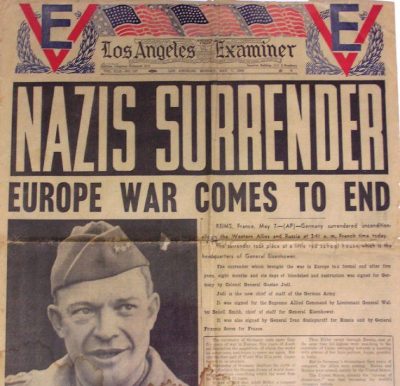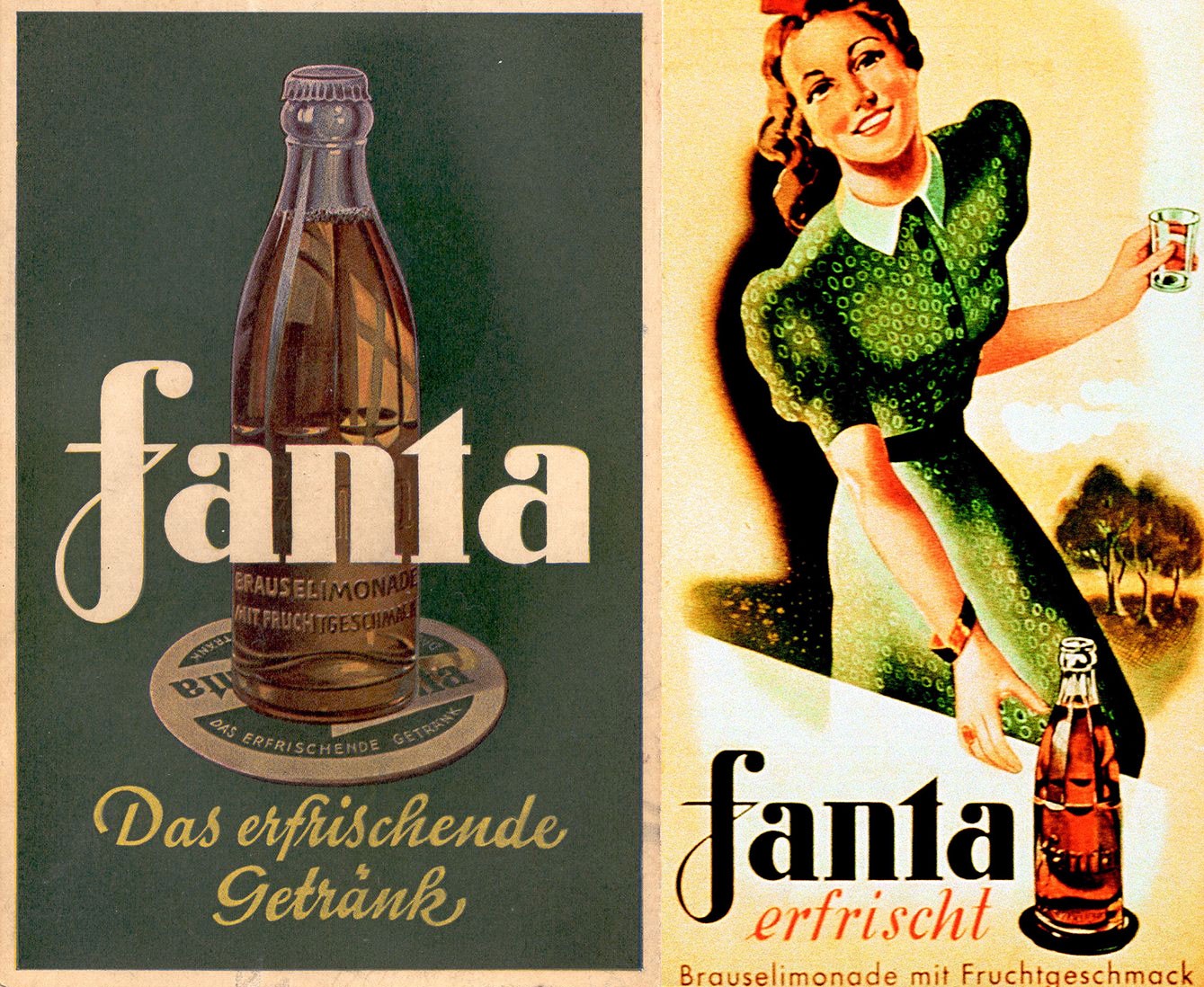Victory in Europe Day: These American Corporations Aided Nazi Germany
From Coca-Cola to Nestle, some of the most iconic American brands eagerly took part in the Nazi experiment.

May 8 marks the 75th anniversary of the Allied armies’ victory in Europe, the day when they accepted the formal surrender of Nazi Germany after a bitter, six-year-long struggle that saw tens of millions killed in fighting, famines or exterminated in death camps. While many novel socially-distanced celebrations across the world are going on, some large corporations are laying low in the knowledge that they actively collaborated with and helped Hitler’s war machine.
Standard Oil, a huge monolith now split up into a myriad of smaller ones, including Chevron, ExxonMobil, BP, and Marathon, was crucial to both prolonging and intensifying the bloodiest conflict in human history. In the 1930s and 1940s, only the United States and Venezuela produced large quantities of oil. Starved of the substance, Germany was almost completely dependent on imports from the Western hemisphere, which Standard Oil dominated. Even after the United States declared war on Germany, it continued to use a great array of tricks to fuel Germany’s war effort, quietly filling up German tankers in the Spanish Canary Islands who would then transport the crucial liquid to German ports. Indeed, one historian quipped that
“Without the explicit help of Standard Oil, the Nazi air force would never have gotten off the ground in the first place.”
The American business community was deeply impressed by Hitler. Wall Street executive Prescott Bush (the father and grandfather of two presidents) aided Hitler’s rise and even organized a failed coup to overthrow President Roosevelt and install German-style fascism in the United States. Chase Bank performed a number of key duties for the Nazis, including accepting, laundering and converting their money into foreign currency. In 1945, they were placed on trial in a federal court for violation of the Trading with the Enemy Act. And if there is one thing Henry Ford is known for besides his cars, it is his antisemitism. Ford himself received a medal from Hitler in 1938 and profiteered from both sides during the war, manufacturing vehicles for both the Allies and the Nazis. The company is also widely accused of knowingly using slave labor in its German plants. In 2000, Food giant Nestle paid out over $14 million to survivors for the same practice.

German Fanta ads circa the 1940s
Despite being an iconic American brand, Coca-Cola was also intimately intertwined with fascism, conducting years-long publicity campaigns associating itself with Nazism and the Hitler Youth. As a result, between 1933 and 1939, the company’s sales in Germany rocketed 4,400 percent. As Coke syrup shipments dried up during the war, the company created a new drink for the German market that still exists to this day: Fanta.
Perhaps New York-based tech company IBM has the most infamous connection to the Nazis, however. Through their subsidiary, Dehomag, the company supplied Hitler with new technology to identify undesirable classes of people and to facilitate their transport to extermination camps. IBM made huge profits designing and manufacturing a system of punch cards that allowed officials to search through databases to identify individuals for extermination, expanding their business as the Holocaust accelerated.
While many corporations are keen for the day to be over, other groups want the public to remember their particular version of events. The U.K. Foreign Office, for example, released a video where Russia’s role in bringing about the end of the war was barely to be seen. NATO’s Joint Force Commander in Naples, Admiral James Foggo, also described the brave Allied forces engaged in combat in North Africa, Normandy and Italy, but appeared to make a point of not mentioning any of the far larger battles that raged on the Eastern Front, between Soviet and Axis forces. Meanwhile, NATO-linked think tank the Atlantic Council used the occasion to accuse Putin of hijacking V-E Day to push Russian aggression in Eastern Europe. The Soviet Union comprised 80 percent of German casualties, with the current Russian government estimating their own total losses at 26.6 million people. In contrast, the U.S. did not enter the European area in any serious numbers until well after the tide had been turned, the Soviets driving Axis forces back hundreds of miles out of Russia and Ukraine by 1944. However, decades of propaganda have got people to forget these inconvenient facts; by 2015, only 11 percent of Americans and 15 percent of Britons answered the U.S.S.R. when asked which country contributed most to the defeat of Hitler.
Lest we forget, remembrance is always political. There are some who would prefer we remember certain particular aspects of events. There are others who would prefer we forgot altogether.
*
Note to readers: please click the share buttons above or below. Forward this article to your email lists. Crosspost on your blog site, internet forums. etc.
Alan MacLeod is a Staff Writer for MintPress News. After completing his PhD in 2017 he published two books: Bad News From Venezuela: Twenty Years of Fake News and Misreporting and Propaganda in the Information Age: Still Manufacturing Consent. He has also contributed to Fairness and Accuracy in Reporting, The Guardian, Salon, The Grayzone, Jacobin Magazine, Common Dreams the American Herald Tribune and The Canary.

